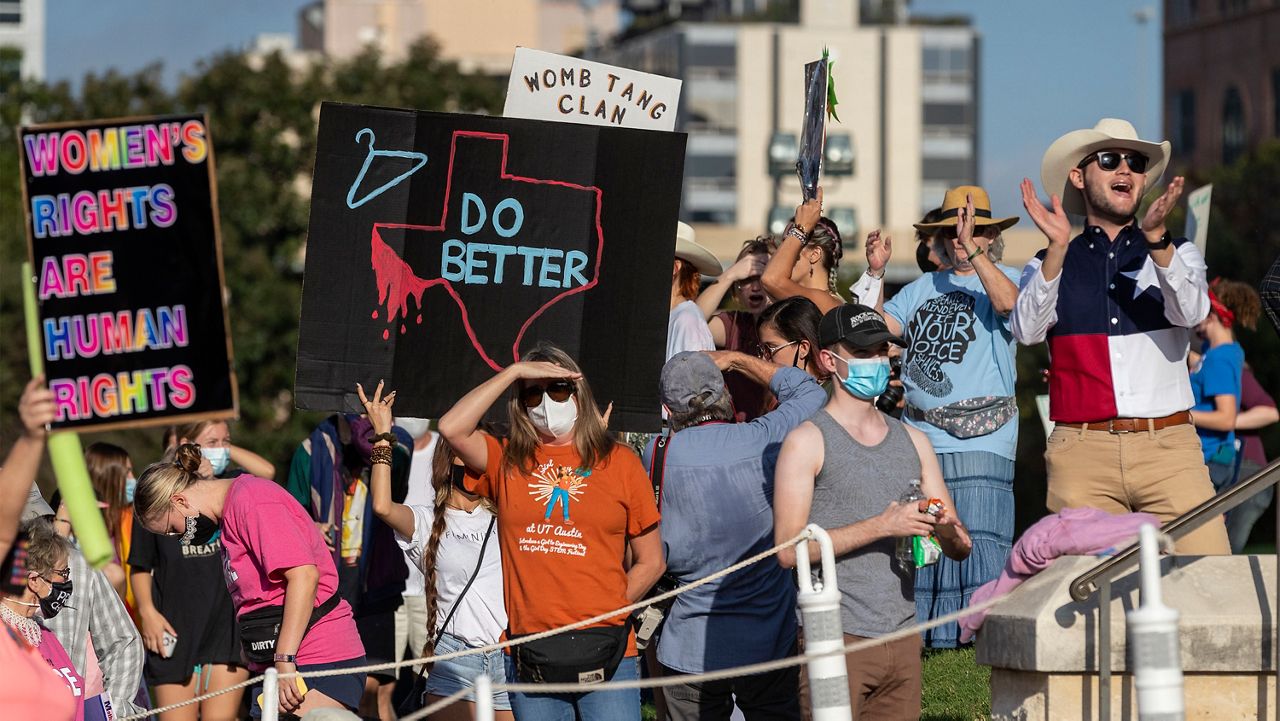HOUSTON — A Texas judge on Tuesday temporarily blocked enforcement of the state's ban on most abortions, part of a flurry of activity set off at courthouses across the U.S. by the overturning of Roe v. Wade.
Statewide bans or other restrictions that were either left on the books for generations, tied up by legal challenges or specifically designed to take effect if Roe were to fall are now in play as a result of last week's Supreme Court ruling eliminating the constitutional right to terminate a pregnancy.
Roughly half the states are expected to prohibit or severely limit abortion now that the high court has left it up to them.
A judge in Houston blocked enforcement for now of a statewide ban on virtually all abortions, according to a group representing abortion clinics in the state.
“It is a relief that this Texas state court acted so quickly to block this deeply harmful abortion ban,” said Marc Hearron, senior counsel at the Center for Reproductive Rights.
Abortions in Texas are still prohibited at about six weeks because of a law that took effect last year.
The U.S. Supreme Court's decision opened the gates on a wave of litigation. One side is seeking to put statewide bans into effect swiftly, while the other is trying to stop or at least delay such measures.
Much of the court activity focused on “trigger laws” adopted in 13 states that were designed to take effect quickly upon last week's ruling. Additional lawsuits could also target old anti-abortion laws that were left on the books in some states and went unenforced under Roe. Newer abortion restrictions that were put on hold pending the Supreme Court ruling are also coming back into play.



